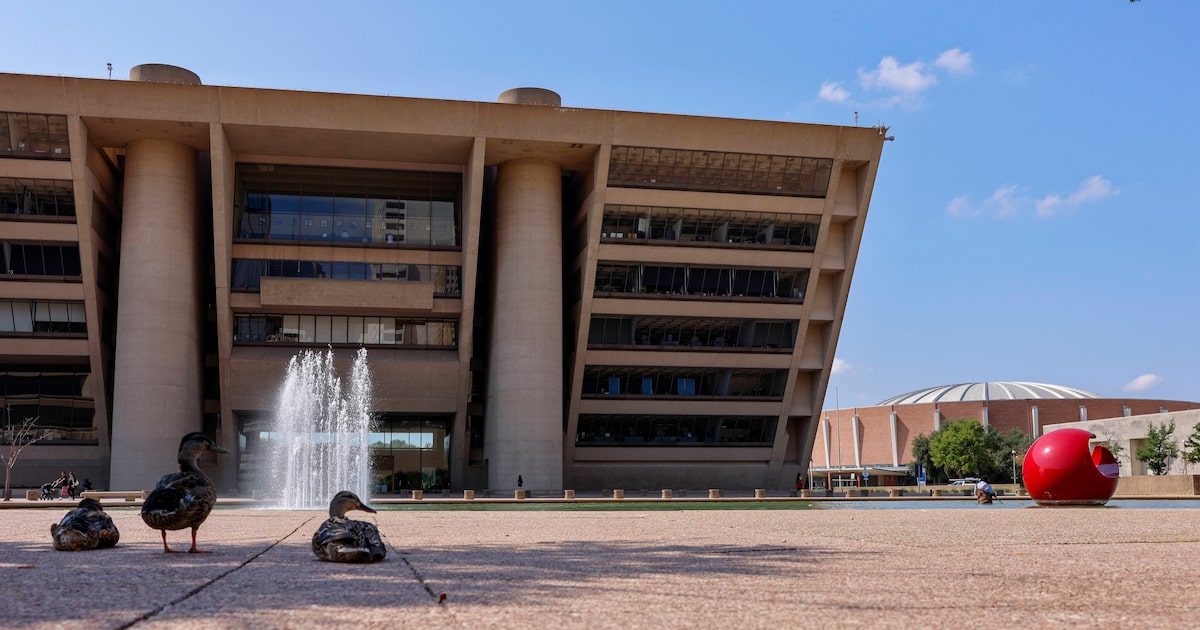Dallas City Council members expressed mixed reactions to the first draft of a proposed $5.2 billion budget on Tuesday.
The draft spending plan received praise from some council members for keying in on top priorities identified by residents surveyed earlier this year, like services geared toward policing, street and city infrastructure maintenance, and housing people who are unsheltered or at risk for eviction.
The proposal raised eyebrows for not being as in-depth an analysis of services the city currently provides as promised. Council members were also concerned about the future of some services like libraries.
Related:Will Dallas see property tax relief next year? It’s complicated
Political Points
Council member Cara Mendelsohn said the elected officials were told this budget draft would rank all city programs based on their importance, impact and cost so they could be evaluated.
“The overarching criticism I’m going to have is that we were told we were going to have a different kind of budget,” she said. “We were going to have a priority-based budget, and that’s not what this is.”
While city officials identified 291 programs, Dallas Chief Financial Officer Jack Ireland said it wasn’t a complete list because there wasn’t enough time to identify and review them all. He and City Manager Kimberly Bizor Tolbert said they would likely start their review for the next budget in November to provide more time.
The latest budget proposed by Tolbert on Friday is $5.2 billion, up from $4.97 billion in the current year. It puts the general fund, which pays for most city services, at $1.97 billion, about $62 million more than the current budget. The Dallas Police Department and Dallas Fire-Rescue are the largest funded city agencies are budgeted to get a total of $1.2 billion combined.
Related:Dallas police, fire come out on top in proposed budget. Here’s how
Other highlights of Tolbert’s proposed budget include the city planning to hire 350 new police officers, starting pay for cops and firefighters increasing to $81,232, street maintenance funding raising from $125 million to $162 million, and the city planning to spend $10 million in strategies to move people in shelters who are experiencing homelessness into housing.
The city is looking to make cuts amid rising demands and expenses. City officials noted that while the $5.2 billion proposed budget is larger than the current $4.97 billion budget, the state’s 3.5% property tax revenue cap limits the property tax revenue Dallas can collect annually without going to the voters, Dallas had lower-than-expected sales tax revenue, and property value growth has slowed.
Amid that backdrop, Tolbert is proposing combining four departments that oversee Dallas’ housing, homelessness, community care and equity and inclusion initiatives into one department. The move is expected to save around $6 million. One hundred jobs held by municipal employees are planned to be cut, and dozens of other vacant positions are planned to be shifted to other areas. The Skillman Southwestern branch library is planned to be closed after escaping the axe last year.
Council member Gay Donnell Willis expressed concern with the city’s sales tax revenue, which was $10 million more than the current budget but lower than projections. She suggested the city encourage residents to shop locally to boost revenue.
“Don’t like potholes? Shop Dallas. Want your library open more hours? Shop Dallas,” she said. “I think there’s a compelling way to tie what our residents are doing back to how it can also help them and have an additional benefit.”
The city plans to hold more than 20 Town Hall meetings to get feedback from residents around Dallas on the proposed budget starting Thursday and running through Aug. 28. Some of the meetings will be in-person, while others will be virtual. Most will be in English, but some will be in Spanish.
The City Council is scheduled to talk next about the proposed budget on Aug. 20. A public hearing for residents to weigh in on the draft plan is set for Aug. 27 at Dallas City Hall.
Council members will begin formally proposing amendments to Tolbert’s draft on Sept. 3. The City Council is currently scheduled to approve a final version of the citywide spending plan on Sept. 17.
The budget goes into effect on Oct. 1.
